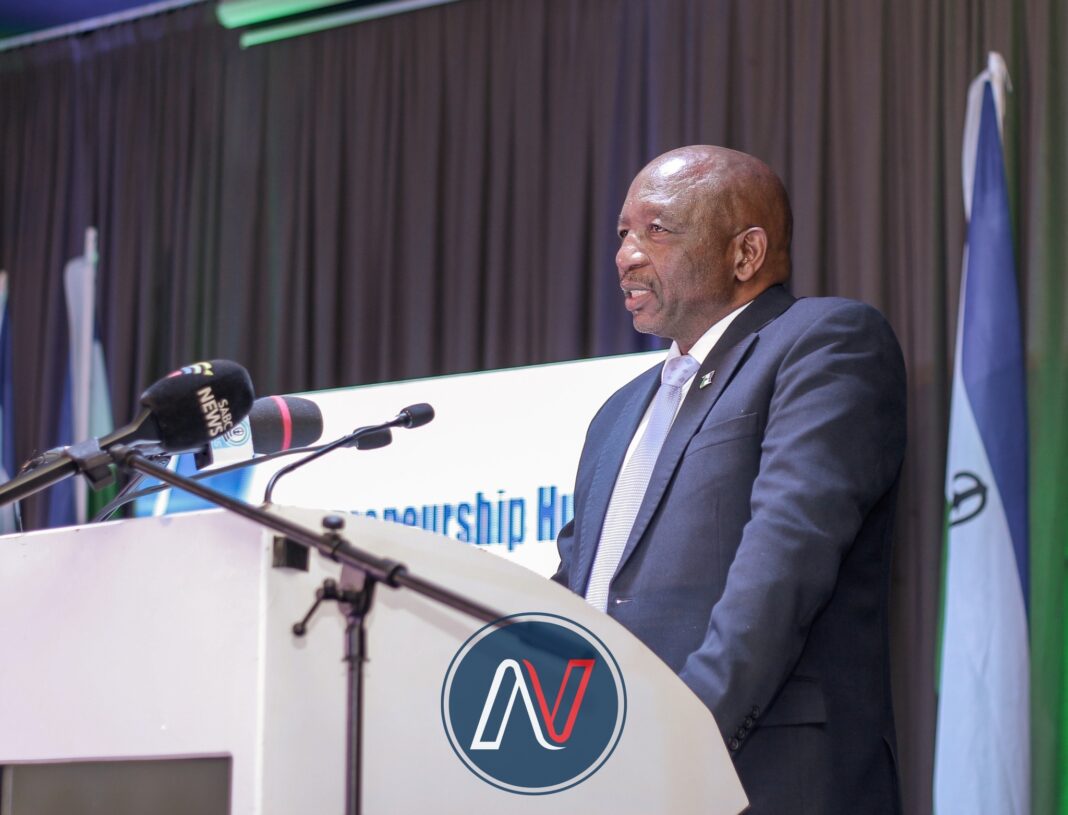Lineo Mahlomola
Prime Minister Matekane says the entrepreneurship hub and seed financing facility is intended to produce globally competitive entrepreneurs, who will participate in international trade.
Matekane, who is himself a successful global businessman, was speaking at the launch of the facility by the Ministry of Trade, Industry, Business Development, and Tourism, in Maseru yesterday.
The entrepreneurship hub and seed financing facility is targeting micro, small to medium enterprises (MSMEs) especially those run by women and youth.
The facility is part of the World Bank-supported Competitiveness and Financial Inclusion (CAFI) project, one of the government’s responses to addressing youth unemployment in the country.
Under the facility, up to 500 entrepreneurs will receive business incubation support to equip them with the necessary technical skills to run sustainable enterprises to reduce unemployment.
Of the incubated businesses, 50 high-value and innovative start-ups will be assisted to make them investor-ready to realize their full growth potential.
“With this initiative, we hope to produce entrepreneurs and companies that will have a global footprint,†Matekane said.
He implored Lesotho entrepreneurs to utilise opportunities provided by globalisation and said the government would accompany them in globalizing their business operations.
“The Entrepreneurship Hub will therefore steer this economy towards private sector-led economic growth, which has been a dream since Lesotho returned to democracy in 1993.
“We believe that in the next five years, we will have local businesses that will be exporting goods and services to all corners of the world.â€
On his part, CAFI project manager, Chaba Mokuku said the objective of the project is to increase access to business support services and financial products for entrepreneurs.
“The CAFI project is designed to address the high rate of unemployment, especially youth unemployment, acute poverty, and other social ills that the country is facing because of unemployment,†Mokuku said.
He said the project comes at an opportune time when the country is trying to recover from the devastating socio-impacts of Covid-19 and the Russia- Ukraine war, which is affecting the global economy.
Mokhethi Shelile, the Minister of Trade, who also graced the launch, said the project would play an important role in supporting the participation of MSMEs, especially in the textiles and garments sector to counter more job losses.
In 2021, the government said it was worried that frustration among unemployed youth could spill out into the streets leading to an uprising.
It said this in its draft document titled: Youth Employment Stimulus Programme. The document, prepared by the Prime Minister’s delivery unit and accountability unit, also mentioned that the youth unemployment rate in the country was one of the highest in the world.
“The continued high rate of youth unemployment in Lesotho presents a serious risk to the promotion of an inclusive economy and society, and has started to ignite an uprising which will potentially result in instability,†read the document.
It indicated that the unemployment situation was worsened by the COVID-19 pandemic.
“The pandemic has had an unprecedented impact on the economy that has left several people out of work, with young people, women and less skilled people worst affected,†it read.
The government then proposed a youth employment stimulus programme that would enhance the national capacity to promote employment-intensive growth.
The programme would also enhance youth skills and competencies for employability and enterprise competitiveness.
It was anticipated the programme would run for three years to 2024 and would cost government or taxpayers an estimated M1.4 billion.
“The programme’s overall objective is to create jobs for the youth, with one of the focus areas being through the support of productive self-employment, read the government document.
It added: “It also aims to consolidate the previous interventions targeted at addressing youth unemployment crisis and targets about 40,000 young people who will be engaged during three years on a rotational basis, with the estimated budget of M1.4 billion.â€
It is not clear if the programme was eventually implemented.
Earlier in the same year, the World Bank published findings of an assessment it did which found that youth unemployment in Lesotho was among the highest in the world, and three times higher than the average rate observed in other lower-middle-income countries.
The assessment provided an analysis of how effective Lesotho was in establishing a social protection system that responds to the needs of the people, and its findings and recommendations were contained in a report titled: Lesotho Social Protection Programs and Systems Review.
“Basotho suffer from both high inactivity and unemployment. High youth unemployment creates a specific vulnerable group not typically captured in lifecycle perspectives on social assistance,†read the report.
Apart from the very high jobless rate, the World Bank stated in the report that the other particularly disturbing trend was that more and more people had become discouraged and given up looking for work.
It said: “Half of the working age population is not participating in the labour market (does not have a job nor is looking for one), constituting a huge untapped potential for economic growth.â€




